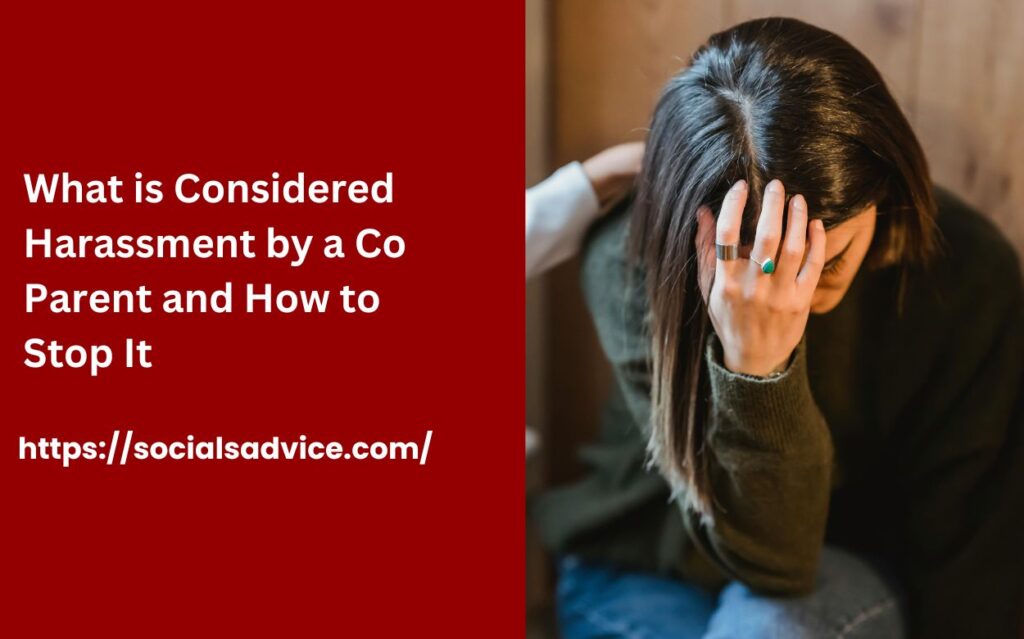
Co-parenting is shared child-rearing responsibilities after a marriage has broken down, in which both parents work together and make decisions to provide care and support for their child’s well-being even after they are no longer living together.
Co-parenting work together on issues such as health care, education, parenting schedules, and other important elements of child-rearing. Co-parenting aims to provide the healthy environment for a child to promote their physical, emotional and social development.
But, it’s often asked, how do you deal with an antagonistic co-parents?
Challenging Co-Parenting Dynamics
Effective co-parenting requires open communication, teamwork, and a commitment to the best interest of a child.
However, an adversarial co-parents is aggressive, confrontational, and argumentative during co-parenting. They often have high levels of conflict and find it difficult to communicate with another parents and to form appropriate, harmonious relationships.
In learning how to deal with an adversarial co-parents, one should remember that an adversarial co-parenting regularly argues, never cooperates and challenges to another parent’s authority in the child’s life. Their harsh measures affect the child’s well-being while creating a hostile environment for other parents as well.
Navigating Challenges with Difficult Co-Parents
Dealing with hostile co-parenting is difficult because it drains you emotionally, but it’s important to prioritize the child’s well-being and find strategies to manage the situation effectively.
Your aim should only be to provide a happy environment for children. That’s why you need to set boundaries, stay calm, and seek appropriate advice to manage difficulties while working with the opposing co-parents to protect your child’s best interests.
Maintain Composure
When figuring out how to deal with an antagonistic co-parenting, it’s important to stay calm and stay in control to avoid any escalating issues or responding aggressively. Be sure to keep a respectful tone and stay to the point.
Set Clear Boundaries
To avoid unnecessary disputes, you need to establish clear boundaries with the co-parents for your safety and that of your child by communicating boundaries and restrictions regarding appropriate behavior and ensuring that they follow them consistently.
Minimized Contact
It’s wise to limit conversations with the opposing co-parenting to important child-related topics by keeping text messages specific and relevant to the issue. Make sure to avoid making any personal attacks and avoid engaging in conversations that could escalate the circumstances.
Engage in Written Communication
It’s wise to communicate in writing via email and text message, as it helps to keep track of interactions to prevent any misunderstandings. It helps you avoid emotional reactions and write sensible answers.
Third-Party
Try to involve a neutral third party if your interactions with an opposing co-parents are ineffective or adversarial, such as a counselor or mediator. Such individuals can help improve communication and solve problems by developing mutually beneficial solutions.
Keep Written Records
Keeping a record of any inappropriate behavior by the opposing co-parents is important if legal action is required in the future. Document events with specific dates, times and details.
Focus on the Child’s Well-being
You need to prioritize the best interest of a child, regardless of the co-parent’s hostile behavior or aggressive nature. It’s important to make decisions that take into account the child’s needs and improve their safety and health. Avoid involving children in disagreements.
Reach Out for Assistance
When dealing with an adversarial co-parenting, it can be quite exhausting, so finding neutral friends, family, or a counselor can help guide and understand the situation more accurately. You can also join support groups where you can learn from similar issues and get advice.
Consult an Lawyer
If the co-parent’s hostile behavior is worsening and harming the child’s health, it’s important to consult with a professional attorney who can advise on legal alternatives. They can advise you about custody arrangements or restraining orders if needed.
Signals of Hostile Co-Parenting
Hostile co-parents have toxic personalities and make everything difficult to deal with. They have the following behaviors that damage relationships and worsen situations,
Negative Talk
Such hostile co-parents say things about you that are inappropriate and untrue. They engage in this behavior to use children for therapy, believing they are protecting their children by speaking ill of them.
Pointing Fingers
Anti-co-parenting blames you for divorce or other problems that occur during your marriage. They never accept their bad deeds and just blame you.
“Disregard for Boundaries
Opposing co-parents never recognize boundaries and give you advice on how you should manage your home. After the visiting time is over, they manipulate the children.
Conclusion
When figuring out how to deal with an adversarial co-parents, you need to prioritize your child’s well-being. Communicate effectively and focus on problem-solving. You can get help from your family or professional counselors by keeping a record of every conversation.
FAQ’s
How to maintain composure when dealing with the hostile co-parents?
You need to acknowledge your feelings and stay calm while focusing on the positive aspects of the situation.
Why do you need to document every interaction with the hostile co-parenting?
Likewise, you need to keep a record of every conversation, message and email as it can be a handful for future reference or legal purposes.
How to make effective decisions regarding a child?
When making any decision, you need to prioritize your child’s best interests and ensure their physical, emotional and social well-being. You need compassion and consideration when making any big decision.
How do you deal with manipulative co parenting?
Once you recognize the signs that your co-parents are engaging in manipulative behaviors, an effective way to counter their efforts is to establish and stick to healthy boundaries.
How do you deal with the passive aggressive co-parents?
Don’t respond by getting into an argument. Rather, ignore the behavior to the best of your ability and restate your point as needed. For example, if another parents isn’t showing up when they should, you can re-emphasize that the parents needs to, without blaming them for not doing so.


